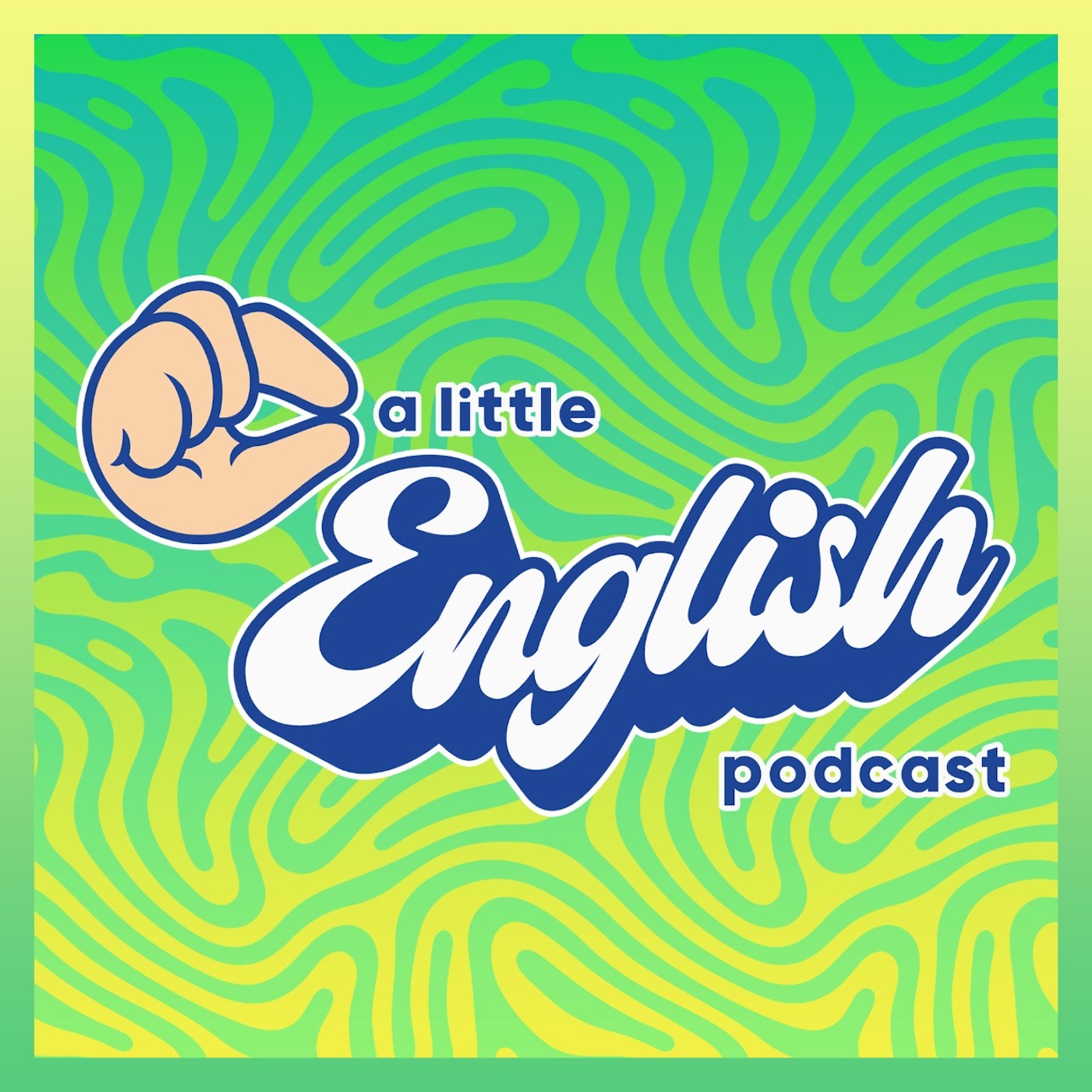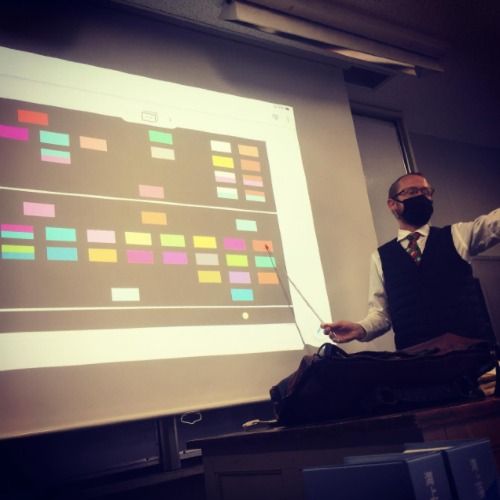Episode 9
'Twas the Night Before Christmas (A Visit from St. Nicholas) by Clement Clarke Moore
I'm doing a little survey to find out more about ALE listeners. There are just four tiny questions. It will only take a minute or two, and will help me a LOT! Please check it out. Thanks, Cooper
👇👇👇👇👇👇👇👇👇👇👇
Season 2 Episode 9CLICK HERE FOR ILLUSTRATIONS OF THIS STORY
Thank you for downloading this episode.
👉The story begins at 03:10 and the tiny lessons begin at14:15
👉You can find the transcript after the Credits!
👉Visit our website to download the Podcast User's Manual and find out more! https://alittleenglish.com/
A Little English is written, produced, recorded, edited, mixed, mastered and scored by Edward Cooper Howland.
All stories are either in the public domain, or written by me.
Copyright 2026 Edward Cooper Howland
⭐ ⭐ ⭐ ⭐ ⭐ ⭐ ⭐ ⭐ ⭐ ⭐ ⭐ ⭐ ⭐ ⭐⭐ ⭐ ⭐ ⭐ ⭐ ⭐ ⭐ ⭐ ⭐ ⭐ ⭐ ⭐ ⭐
TRANSCRIPT:
Hi. My name is Cooper, and this is…A Little English. Every episode, I read a short story. After the story, there are three tiny lessons.
First of all, I want to say we just reached 2,000 downloads, which is totally crazy. I’m so grateful to all the people who are listening. YOU’re all over the world, and you’re listening to my little show and it’s just amazing. Thank you.
This episode will be a little different, because I’m not reading a story. I’m reading a poem. It’s easily the most famous poem about Christmas. One year when I was a kid, my parents got me and my brother and sister to memorize the whole thing and recite it at family Christmas. So like, three elementary school kids can memorize and recite it. It’s not too difficult.
Next week I have something very special planned, and then in the new year, I’m going to start Season Three, which will have one big difference. Since I started planning this show, I always wanted to write the stories myself. Now that I’ve been reading other people’s stories for about five months, I think I’m ready. So I will write and read my own stories for as long as I can. Maybe some weeks I’ll do something different, but for a while at least, I’ll be the author of all the stories. I really hope you enjoy them.
Anyway, let’s get into the poem. By the way, Project Gutenberg has some really excellent illustrations for this poem. There is a link at the top of the show notes, and it’s worth going to see them.
The Night before Christmas (or, A Visit from St. Nicholas) by Clement Clarke Moore.
We will start with the introduction, which might help you understand something about the poem
Amid the many celebrations last Christmas Eve, in various places by different persons, there was one, in New York City, not like any other anywhere. A company of men, women, and children went together just after the evening service in their church, and, standing around the tomb of the author of “A Visit from St. Nicholas,” recited together the words of the poem which we all know so well and love so dearly.
Dr. Clement C. Moore, who wrote the poem, never expected that he would be remembered by it. If he expected to be famous at all as a writer, he thought it would be because of the Hebrew Dictionary that he wrote. (This is Edior Cooper in the future. Remember, Hebrew is a language)
He was born in a house near Chelsea Square, New York City, in 1781; and he lived there all his life. It was a great big house, with fireplaces in it;—just the house to be living in on Christmas Eve.
Dr. Moore had children. He liked writing poetry for them even more than he liked writing a Hebrew Dictionary. He wrote a whole book of poems for them.
One year he wrote this poem, which we usually call “’Twas the Night before Christmas,” to give to his children for a Christmas present. They read it just after they had hung up their stockings before one of the big fireplaces in their house. Afterward, they learned it, and sometimes recited it, just as other children learn it and recite it now. (This is Editor Cooper in the future. See?)
It was printed in a newspaper. Then a magazine printed it, and after a time it was printed in the school readers. Later it was printed by itself, with pictures. Then it was translated into German, French, and many other languages. It was even made into “Braille”; which is the raised printing that blind children read with their fingers. But never has it been given to us in so attractive a form as in this book. It has happened that almost all the children in the world know this poem. How few of them know any Hebrew!
Every Christmas Eve the young men studying to be ministers at the General Theological Seminary, New York City, put a holly wreath around Dr. Moore’s picture, which is on the wall of their dining-room. Why? Because he gave the ground on which the General Theological Seminary stands? Because he wrote a Hebrew Dictionary? No. They do it because he was the author of “A Visit from St. Nicholas.”
Most of the children probably know the words of the poem. They are old. But the pictures that Miss Jessie Willcox Smith has painted for this edition of it are new. All the children, probably, have seen other pictures painted by Miss Smith, showing children at other seasons of the year. How much they will enjoy looking at these pictures, showing children on that night that all children like best,—Christmas Eve!
And it’s signed,
E. McC.
Who I don’t know who that is. And by the way, the pictures that they’re talking about in this introduction, if you follow the link at the top of the show notes of this podcast, you can see them. And you should. They’re really good
And now, the poem.
'Twas the night before Christmas, when all through the house
Not a creature was stirring, not even a mouse;
The stockings were hung by the chimney with care,
In hopes that St. Nicholas soon would be there;
The children were nestled all snug in their beds,
While visions of sugar-plums danced in their heads;
And mamma in her 'kerchief, and I in my cap,
Had just settled down for a long winter's nap,
When out on the lawn there arose such a clatter,
I sprang from the bed to see what was the matter.
Away to the window I flew like a flash,
Tore open the shutters and threw up the sash.
The moon on the breast of the new-fallen snow
Gave the lustre of mid-day to objects below,
When, what to my wondering eyes should appear,
But a miniature sleigh, and eight tiny reindeer,
With a little old driver, so lively and quick,
I knew in a moment it must be St. Nick.
More rapid than eagles his coursers they came,
And he whistled, and shouted, and called them by name;
"Now, DASHER! now, DANCER! now, PRANCER and VIXEN!
On, COMET! on CUPID! on, DONNER and BLITZEN!
To the top of the porch! to the top of the wall!
Now dash away! dash away! dash away all!"
As dry leaves that before the wild hurricane fly,
When they meet with an obstacle, mount to the sky,
So up to the house-top the coursers they flew,
With the sleigh full of toys, and St. Nicholas too.
And then, in a twinkling, I heard on the roof
The prancing and pawing of each little hoof.
As I drew in my hand, and was turning around,
Down the chimney St. Nicholas came with a bound.
He was dressed all in fur, from his head to his foot,
And his clothes were all tarnished with ashes and soot;
A bundle of toys he had flung on his back,
And he looked like a peddler just opening his pack.
His eyes -- how they twinkled! his dimples how merry!
His cheeks were like roses, his nose like a cherry!
His droll little mouth was drawn up like a bow,
And the beard of his chin was as white as the snow;
The stump of a pipe he held tight in his teeth,
And the smoke it encircled his head like a wreath;
He had a broad face and a little round belly,
That shook, when he laughed like a bowlful of jelly.
He was chubby and plump, a right jolly old elf,
And I laughed when I saw him, in spite of myself;
A wink of his eye and a twist of his head,
Soon gave me to know I had nothing to dread;
He spoke not a word, but went straight to his work,
And filled all the stockings; then turned with a jerk,
And laying his finger aside of his nose,
And giving a nod, up the chimney he rose;
He sprang to his sleigh, to his team gave a whistle,
And away they all flew like the down of a thistle.
But I heard him exclaim, ere he drove out of sight,
HAPPY CHRISTMAS TO ALL, AND TO ALL A GOOD-NIGHT!
So, that’s the most famous poem about christmas. We all read it when we are kids. Do you? Did they translate it to your language? Is this the first time you’ve heard it?
How about some tiny lessons?
The Big Picture is looking pretty Christmasy!
Tonight’s question is, who is this Saint Nick person?
Of course, it’s Santa Claus. He looks pretty different from our idea of him. He is kinda…fat, nd he has a white beard and a pipe. But he’s not wearing red and white. Instead he’s wearing…all fur. Which makes more sense really. It’s cold on Christmas Eve. But the Red-and-white Santa, that comes from Coca-Cola in the 1930s. Really. Theyre the same colors as a can of Coke!
How about a little dance at the Dictionary Disco?
Our first vocabulary word is: stockings. I’m not sure where you’re listening from, but generally stockings these days are like nylons. They’re long and thin and for ladies, mostly. But we’re not talking about that. We’re talking about the big thick socks that we hang in front of the fireplace. And santa stuffs them full of chocolate and oranges and all kinds of good presents. If you’ve been a good kid. Of course.
The second word is, clatter. It’s a sound word again. It’s a sound like a bunch of hard objects knocking together. Sounds like the word, right? CLATTER. Like a sound effect in a comic book
And how is this for a Melody Moment?
I wanna talk about the first word in the poem. “ ‘twas ” Definitely not a normal English word, ‘twas. But it actually goes back to something I talk about all the time. I am obsessed with vowel reduction, when a vowel sound like “A” gets kind of squished and becomes “a” (that’s a schwa) Well sometimes we go even further from vowel reduction to vowel deletion. So instead of saying IT WAS, we delete the vowel in the first word and say…..’twas. I call this….hyperschwa. Nobody else calls it that. And actually it’s pretty unusual to write a hyperschwa. We say stuff like that, but don’t write it out. Except, of course, in poems. In poems you can do anything you want.
Let’s do the credits
Thank you for listening to Season 2 Episode 9 of A Little English.
Every episode is produced entirely by me, Edward Cooper Howland, here in Hiroshima, Japan.
If you like the show, tell someone about it! A recommendation from a friend is the best way to get someone to listen, and I would really appreciate it.
The stories I read are in the public domain, and this time it came from gutenberg.org, which is also really good website and you should check it out.
Again, thank you so much for listening.
For now, be kind to yourselves, and to each other.
Mentioned in this episode:
Transcript
Hi. My name is Cooper, and this is…A Little English. Every episode, I read a short story. After the story, there are three tiny lessons.
First of all, I want to say we just reached 2,000 downloads, which is totally crazy. I’m so grateful to all the people who are listening. YOU’re all over the world, and you’re listening to my little show and it’s just amazing. Thank you.
This episode will be a little different, because I’m not reading a story. I’m reading a poem. It’s easily the most famous poem about Christmas. One year when I was a kid, my parents got me and my brother and sister to memorize the whole thing and recite it at family Christmas. So like, three elementary school kids can memorize and recite it. It’s not too difficult.
Next week I have something very special planned, and then in the new year, I’m going to start Season Three, which will have one big difference. Since I started planning this show, I always wanted to write the stories myself. Now that I’ve been reading other people’s stories for about five months, I think I’m ready. So I will write and read my own stories for as long as I can. Maybe some weeks I’ll do something different, but for a while at least, I’ll be the author of all the stories. I really hope you enjoy them.
Anyway, let’s get into the poem. By the way, Project Gutenberg has some really excellent illustrations for this poem. There is a link at the top of the show notes, and it’s worth going to see them.
The Night before Christmas (or, A Visit from St. Nicholas) by Clement Clarke Moore.
We will start with the introduction, which might help you understand something about the poem
Amid the many celebrations last Christmas Eve, in various places by different persons, there was one, in New York City, not like any other anywhere. A company of men, women, and children went together just after the evening service in their church, and, standing around the tomb of the author of “A Visit from St. Nicholas,” recited together the words of the poem which we all know so well and love so dearly.
Dr. Clement C. Moore, who wrote the poem, never expected that he would be remembered by it. If he expected to be famous at all as a writer, he thought it would be because of the Hebrew Dictionary that he wrote. (This is Edior Cooper in the future. Remember, Hebrew is a language)
sea Square, New York City, in:Dr. Moore had children. He liked writing poetry for them even more than he liked writing a Hebrew Dictionary. He wrote a whole book of poems for them.
One year he wrote this poem, which we usually call “’Twas the Night before Christmas,” to give to his children for a Christmas present. They read it just after they had hung up their stockings before one of the big fireplaces in their house. Afterward, they learned it, and sometimes recited it, just as other children learn it and recite it now. (This is Editor Cooper in the future. See?)
It was printed in a newspaper. Then a magazine printed it, and after a time it was printed in the school readers. Later it was printed by itself, with pictures. Then it was translated into German, French, and many other languages. It was even made into “Braille”; which is the raised printing that blind children read with their fingers. But never has it been given to us in so attractive a form as in this book. It has happened that almost all the children in the world know this poem. How few of them know any Hebrew!
Every Christmas Eve the young men studying to be ministers at the General Theological Seminary, New York City, put a holly wreath around Dr. Moore’s picture, which is on the wall of their dining-room. Why? Because he gave the ground on which the General Theological Seminary stands? Because he wrote a Hebrew Dictionary? No. They do it because he was the author of “A Visit from St. Nicholas.”
Most of the children probably know the words of the poem. They are old. But the pictures that Miss Jessie Willcox Smith has painted for this edition of it are new. All the children, probably, have seen other pictures painted by Miss Smith, showing children at other seasons of the year. How much they will enjoy looking at these pictures, showing children on that night that all children like best,—Christmas Eve!
And it’s signed,
E. McC.
Who I don’t know who that is. And by the way, the pictures that they’re talking about in this introduction, if you follow the link at the top of the show notes of this podcast, you can see them. And you should. They’re really good
And now, the poem.
'Twas the night before Christmas, when all through the house
Not a creature was stirring, not even a mouse;
The stockings were hung by the chimney with care,
In hopes that St. Nicholas soon would be there;
The children were nestled all snug in their beds,
While visions of sugar-plums danced in their heads;
And mamma in her 'kerchief, and I in my cap,
Had just settled down for a long winter's nap,
When out on the lawn there arose such a clatter,
I sprang from the bed to see what was the matter.
Away to the window I flew like a flash,
Tore open the shutters and threw up the sash.
The moon on the breast of the new-fallen snow
Gave the lustre of mid-day to objects below,
When, what to my wondering eyes should appear,
But a miniature sleigh, and eight tiny reindeer,
With a little old driver, so lively and quick,
I knew in a moment it must be St. Nick.
More rapid than eagles his coursers they came,
And he whistled, and shouted, and called them by name;
"Now, DASHER! now, DANCER! now, PRANCER and VIXEN!
On, COMET! on CUPID! on, DONNER and BLITZEN!
To the top of the porch! to the top of the wall!
Now dash away! dash away! dash away all!"
As dry leaves that before the wild hurricane fly,
When they meet with an obstacle, mount to the sky,
So up to the house-top the coursers they flew,
With the sleigh full of toys, and St. Nicholas too.
And then, in a twinkling, I heard on the roof
The prancing and pawing of each little hoof.
As I drew in my hand, and was turning around,
Down the chimney St. Nicholas came with a bound.
He was dressed all in fur, from his head to his foot,
And his clothes were all tarnished with ashes and soot;
A bundle of toys he had flung on his back,
And he looked like a peddler just opening his pack.
His eyes -- how they twinkled! his dimples how merry!
His cheeks were like roses, his nose like a cherry!
His droll little mouth was drawn up like a bow,
And the beard of his chin was as white as the snow;
The stump of a pipe he held tight in his teeth,
And the smoke it encircled his head like a wreath;
He had a broad face and a little round belly,
That shook, when he laughed like a bowlful of jelly.
He was chubby and plump, a right jolly old elf,
And I laughed when I saw him, in spite of myself;
A wink of his eye and a twist of his head,
Soon gave me to know I had nothing to dread;
He spoke not a word, but went straight to his work,
And filled all the stockings; then turned with a jerk,
And laying his finger aside of his nose,
And giving a nod, up the chimney he rose;
He sprang to his sleigh, to his team gave a whistle,
And away they all flew like the down of a thistle.
But I heard him exclaim, ere he drove out of sight,
HAPPY CHRISTMAS TO ALL, AND TO ALL A GOOD-NIGHT!
So, that’s the most famous poem about christmas. We all read it when we are kids. Do you? Did they translate it to your language? Is this the first time you’ve heard it?
How about some tiny lessons?
The Big Picture is looking pretty Christmasy!
Tonight’s question is, who is this Saint Nick person?
t comes from Coca-Cola in the:How about a little dance at the Dictionary Disco?
Our first vocabulary word is: stockings. I’m not sure where you’re listening from, but generally stockings these days are like nylons. They’re long and thin and for ladies, mostly. But we’re not talking about that. We’re talking about the big thick socks that we hang in front of the fireplace. And santa stuffs them full of chocolate and oranges and all kinds of good presents. If you’ve been a good kid. Of course.
The second word is, clatter. It’s a sound word again. It’s a sound like a bunch of hard objects knocking together. Sounds like the word, right? CLATTER. Like a sound effect in a comic book
And how is this for a Melody Moment?
I wanna talk about the first word in the poem. “ ‘twas ” Definitely not a normal English word, ‘twas. But it actually goes back to something I talk about all the time. I am obsessed with vowel reduction, when a vowel sound like “A” gets kind of squished and becomes “a” (that’s a schwa) Well sometimes we go even further from vowel reduction to vowel deletion. So instead of saying IT WAS, we delete the vowel in the first word and say…..’twas. I call this….hyperschwa. Nobody else calls it that. And actually it’s pretty unusual to write a hyperschwa. We say stuff like that, but don’t write it out. Except, of course, in poems. In poems you can do anything you want.
Let’s do the credits
Thank you for listening to Season 2 Episode 9 of A Little English.
Every episode is produced entirely by me, Edward Cooper Howland, here in Hiroshima, Japan.
If you like the show, tell someone about it! A recommendation from a friend is the best way to get someone to listen, and I would really appreciate it.
The stories I read are in the public domain, and this time it came from gutenberg.org, which is also really good website and you should check it out.
Again, thank you so much for listening.
For now, be kind to yourselves, and to each other.



